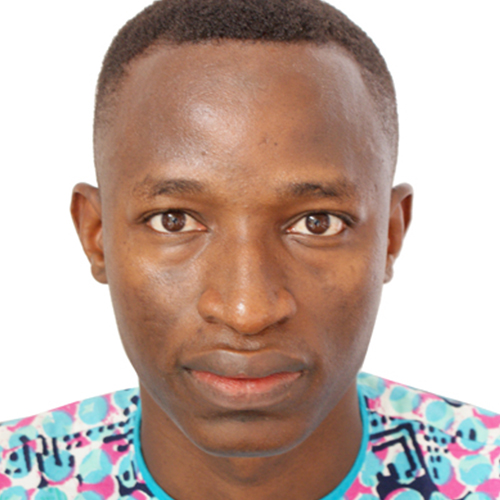
Laty Gaye Thiam
Country (Nationality)
Senegal
Grantee Title
Project: Assessing the functional contribution of genetic diversity in Plasmodium falciparum RH5 vaccine candidate complex in immune evasion
Grantee Description
Country of nationality:
Senegal
Research area:
Malaria
Host Organisation & country:
Institut Pasteur de Dakar, Senegal
Summary
Despite the health burden and threat of malaria in Africa, the development of an effective malaria vaccine hasn’t been possible because of the genetic diversity of the malaria parasite.
The goal of Dr Laty Gaye’s research is to gather critical information for the design of the next-generation malaria vaccines through the characterization of the functional impact of genetic diversity in the malaria parasite’s immune evasion and vaccine efficacy. Dr Laty Gaye will apply state-of-the-art technologies to engineer parasites to contain different variants of the current most prominent blood-stage vaccine candidates and determine the most critical variants to include in a highly effective vaccine.
Grantee Description
Dr Laty Gaye is a postdoctoral research fellow at the Institut Pasteur de Dakar in Senegal. He obtained a PhD degree in Molecular Cell Biology of Infectious Diseases (MCBI) in 2019 from the West African Centre for Cell Biology of Infectious Pathogens (WACCIP), University of Ghana, Legon. His PhD work focused on the mechanisms of erythrocyte invasion by Plasmodium falciparum, with a particular focus on malaria parasite biology and blood stage vaccines.
As an early career researcher, his goal is to contribute to developing comprehensive biological tools to help address the challenges associated with malaria vaccine development. His short-term career goal is to assess the effect of Plasmodium falciparum genetic diversity on vaccine efficacy. In the longer term, this will contribute to developing strategies to enable the design of next-generation malaria vaccines that can circumvent the challenge posed by strain-specific immunity. This fellowship will greatly enhance his career path, as it will enable him to develop the necessary skills for a better understanding of host-pathogen interactions and specifically how parasite genetic diversity impacts vaccine efficacy, while positioning him to be a leader and mentor for young African scientists in malaria biology and vaccinology.
Project: Assessing the functional contribution of genetic diversity in Plasmodium falciparum RH5 vaccine candidate complex in immune evasion
One of the major challenges that has limited the progress of an effective, deployable malaria vaccine is the breadth of parasite genetic diversity, which often results in the development of strain-specific immunity. This problem has diminished enthusiasm for several invasion-blocking candidates after costly Phase IIb trials. The WHO approval of the first malaria vaccine (RTS,S) is a major achievement and it represents a useful first-generation tool that can be used together with other interventions, but designing a highly-effective, strain-transcendent second-generation malaria vaccine remains the “holy grail” of malaria vaccinology. An ideal malaria vaccine is the one that not only combines safety and efficacy, but also can overcome natural genetic diversity – yielding high efficacy against all circulating strains. Such a vaccine will require a rigorous evaluation of the effect of genetic diversity in the earliest stages of vaccine development, clinical trials, and implementation. Over the last decade, the P. falciparum reticulocyte-binding-like protein homolog 5 (PfRH5) has gained special interest as a promising malaria vaccine candidate, as it is shown to be conserved, immunogenic and essential for parasite survival. PfRH5 binds to other parasite antigens, namely the RH5 interacting protein (Ripr) and the cysteine-rich protective antigen (CyRPA), which together, form an essential complex for merozoite invasion of human erythrocytes. In my project, we will combine genomics and experimental genetics to create parasite lines which can be tested for their immune evasive potential using human monoclonal antibodies from both vaccinated and naturally infected individuals to assess the functional contribution of genetic diversity on P. falciparum immune evasion to ultimately inform the design, evaluation, and optimization of the next-generation malaria vaccines.
